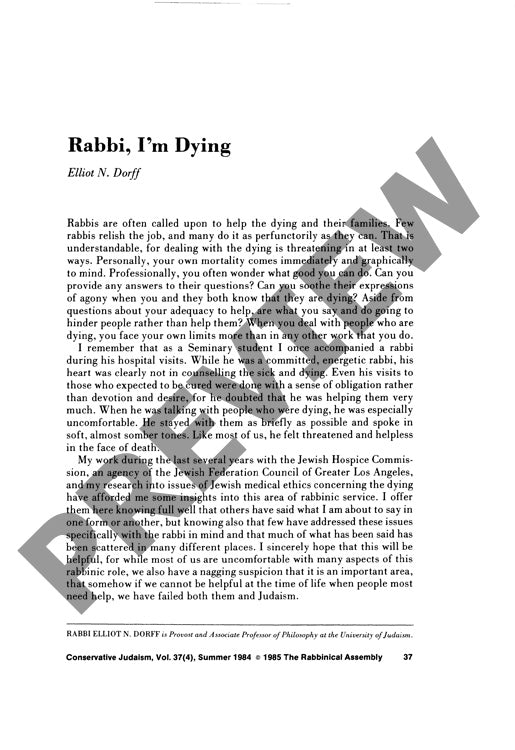Rabbi Im Dying
Couldn't load pickup availability
When dying patients and their families turn to rabbis for guidance, they seek both spiritual comfort and clear religious direction - yet many clergy struggle to bridge ancient Jewish wisdom with modern medical realities. Drawing upon extensive work with the Jewish Hospice Commission and analysis of traditional Jewish legal sources (halakha), this research reveals that rabbis most effectively serve terminal patients by avoiding theological justifications for suffering and instead legitimizing emotions while providing meaningful religious tasks like prayer, study, and ethical will creation. The investigation, using qualitative methodology and traditional textual analysis, examines both pastoral counseling approaches and medical-ethical decision making. Jewish law emerges as permitting passive but not active euthanasia, rooted in core principles that the body belongs to God and carries inherent goodness. Terminal patients may decline extraordinary medical intervention when cure is impossible, aligning hospice care with Jewish values. Regarding organ donation, non-vital transplantation proves permissible and potentially meritorious when specific recipients are identified. Ultimately, effective rabbinic care requires treating dying patients as dignified adults while providing integrated spiritual and practical halakhic guidance, thereby humanizing the dying process through synthesized religious and medical perspectives.

More Information
-
Physical Description
-
Publication Information
Published 1984
ISBN
-
Publication Credits
Elliot Dorff

